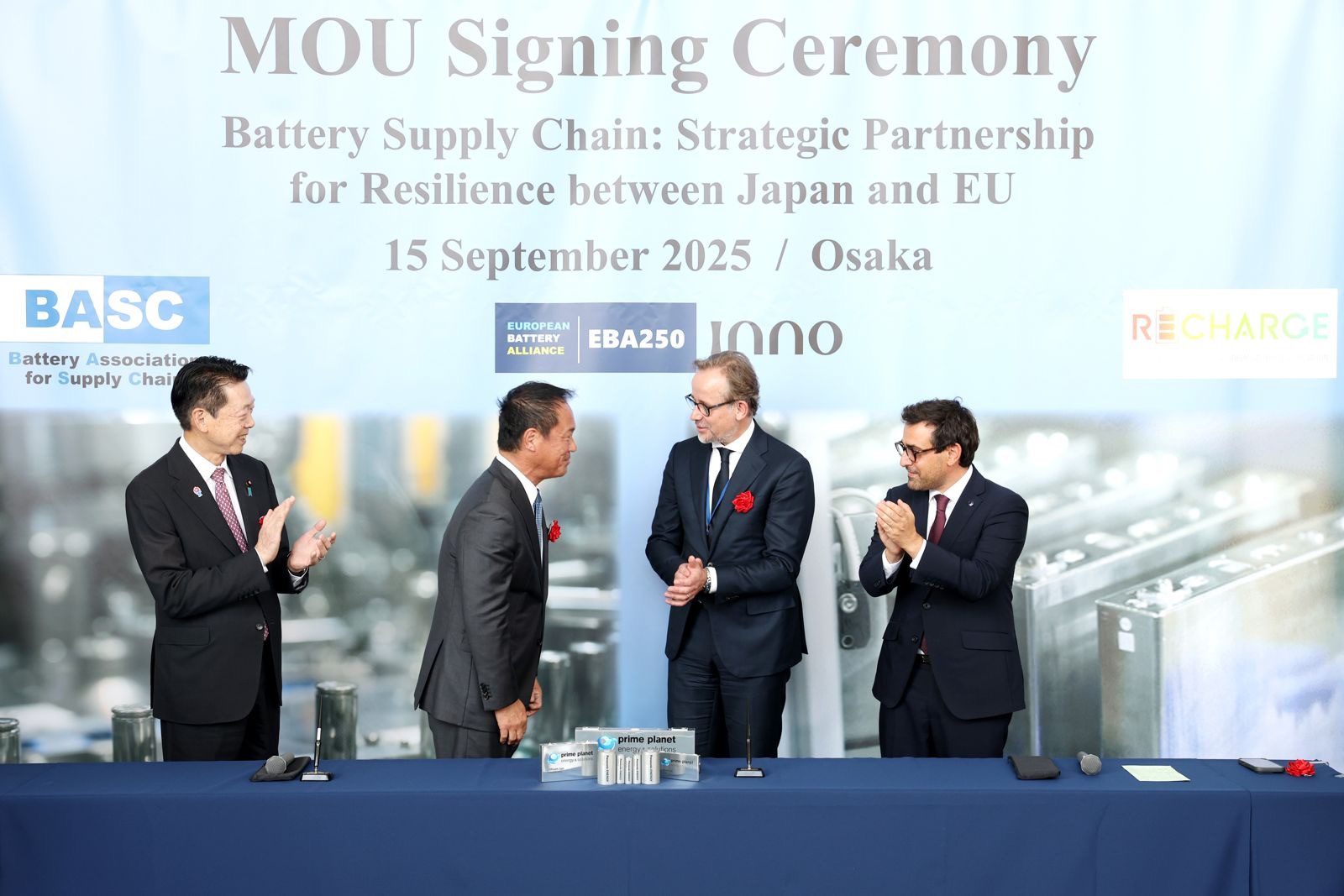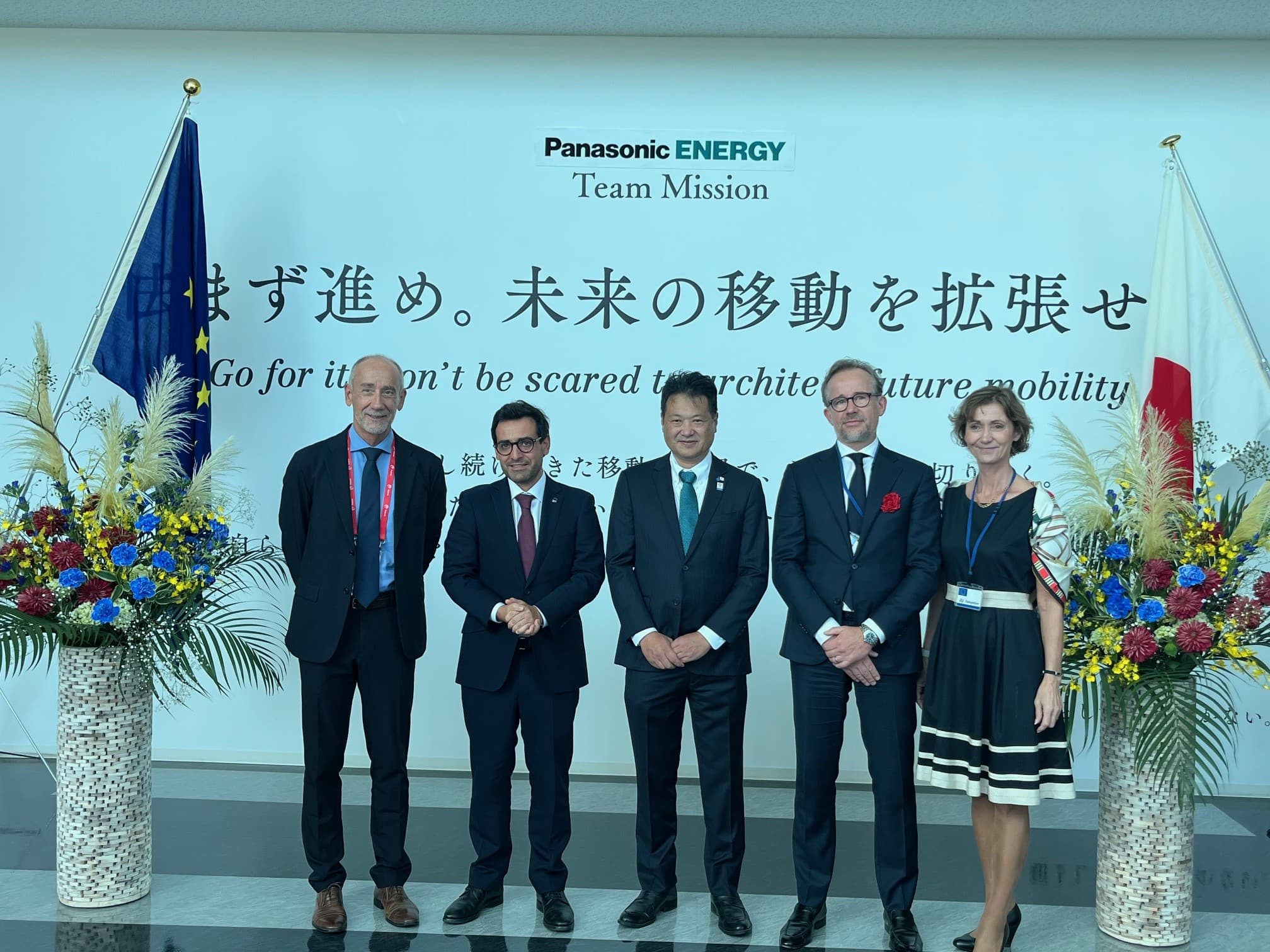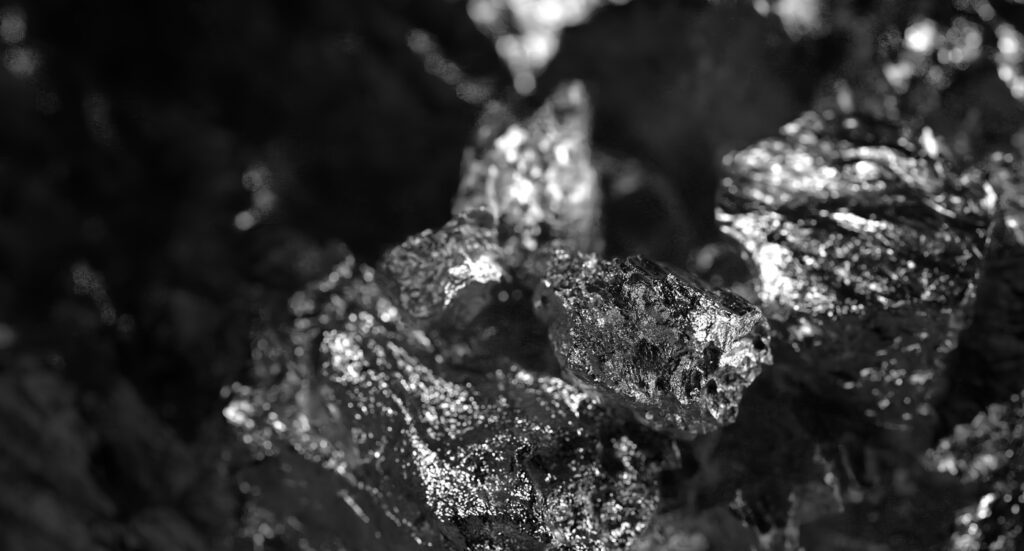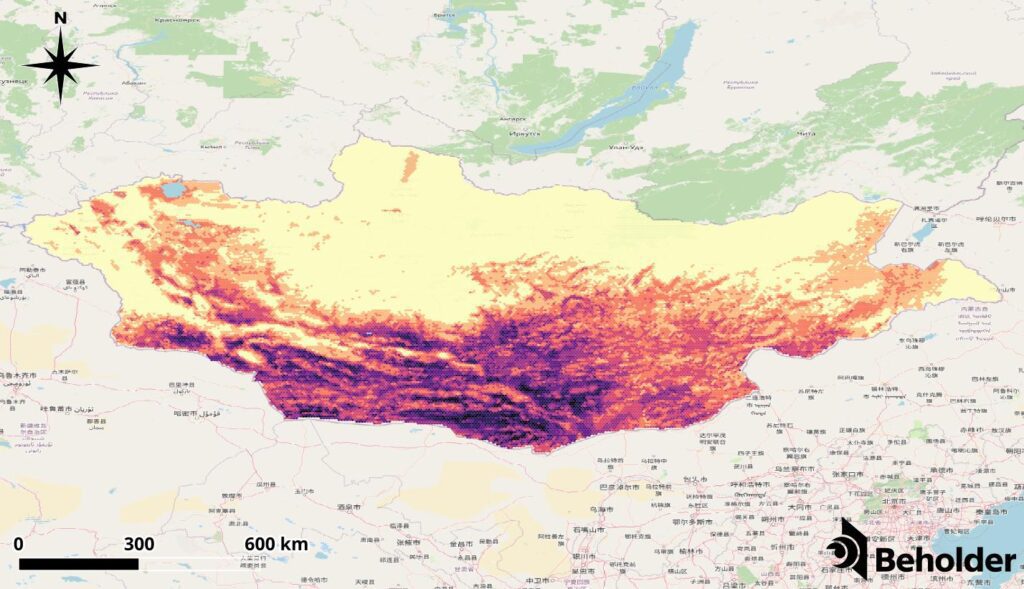Over 15-16 September, InnoEnergy and the European Battery Alliance (EBA) have taken significant steps forward in strengthening EU-Japan industrial ties with the signing of two cooperation agreements with leading Japanese partners.
The signings mark a concrete step in turning the EU–Japan Summit commitments of July 2025 into concrete business and industry action and underscores a shared commitment to net zero by building resilient, competitive clean tech and battery value chains across both regions.
Clean tech cooperation
In Tokyo, InnoEnergy signed a Memorandum of Cooperation (MoC) with the Japan External Trade Organization (JETRO) and Japan’s GX Acceleration Agency, a state-backed clean investment body. The agreement aims to accelerate clean tech innovation and startup growth by mobilising capital for scale-ups, fostering cross-border trade, and strengthening supply chain resilience across strategic sectors including batteries, hydrogen and next-generation solar.
The parties will also exchange market and policy insights, connect companies with new partners and opportunities, facilitate business collaboration through their networks, and co-organise activities such as networking and knowledge-sharing events.
Battery cooperation
In Osaka – one of Japan’s major industrial hubs – the European Battery Alliance (EBA), led by InnoEnergy, together with Europe’s battery association RECHARGE and Japan’s Battery Association for Supply Chain (BASC), signed a Memorandum of Understanding (MoU) to strengthen cooperation across the entire battery value chain. The agreement aims to create new opportunities for both European and Japanese companies, driving cooperation in the following areas:
- Industry-wide cooperation: jointly participate in exhibitions, conferences and workshops, including supply chain mapping and other cross-industry initiatives.
- Recycling: accelerate the growth of black mass recycling and support standardisation to enable closed-loop “battery-to-battery” use.
- Data-sharing: exchange information on battery data systems to advance a circular economy across Europe and Japan.
- Skills and talent: collaborate on education and training initiatives to develop a highly skilled battery workforce.
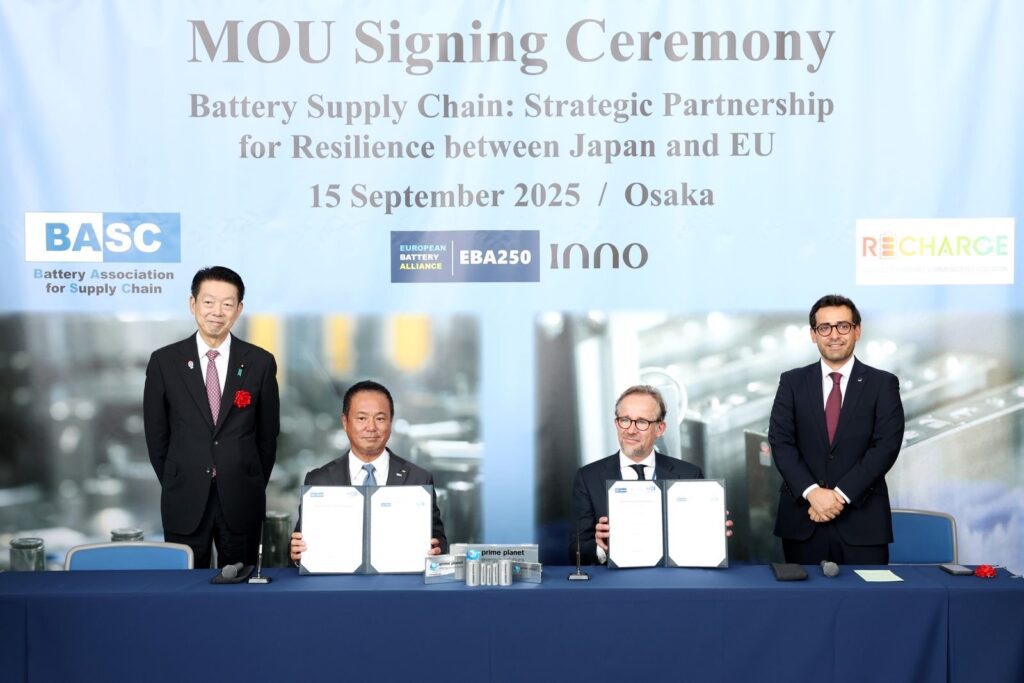
Hiroaki Koda, Chairman of BASC
Bart de Beer, CFO at InnoEnergy representing the European Battery Alliance
Stéphane Séjourné, Executive Vice-President for Prosperity and Industrial Strategy
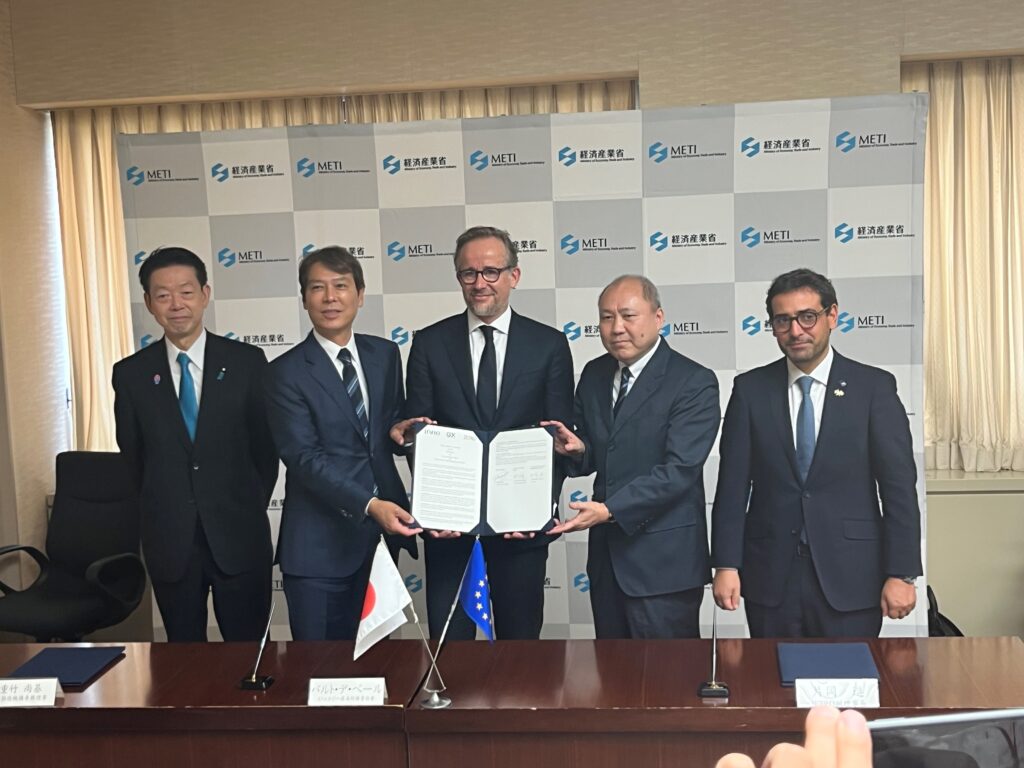
Naoki Shigetake, Chief Operating Officer at GX Acceleration Agency
Bart de Beer, CFO at InnoEnergy
Susumu Kataoka, President of Japan External Trade Organisation (JETRO)
Stéphane Séjourné, Executive Vice-President for Prosperity and Industrial Strategy
A new phase of EU-Japan industrial collaboration
The agreements also supports the wider EU–Japan Competitiveness Alliance and Green Alliance, which was reaffirmed by leaders in EU-Japan Summit in July 2025 as the central pillar of cooperation, committing the two industrial powerhouses to shared objectives on clean growth and climate action.
Stéphane Séjourné, Executive Vice-President of the European Commission for Prosperity and Industrial Strategy, commented on the announcement:
“Our success towards carbon neutrality will largely depend on our ability to innovate in clean technologies. For this, Europe needs solid and close partners like Japan. The MoU signed between European and Japanese businesses today marks a new step to increase investments, and develop commercial opportunities, for our respective clean tech value chains. And a concrete new milestone on our common journey to fight climate change.”
Diego Pavia, CEO of InnoEnergy, added:
“Europe and Japan share a long tradition of industrial leadership, technological excellence, and clean tech innovation. By connecting our ecosystems, we can put this strength to work: by fast forwarding clean commodities manufacturing and adoption within industries such as electricity-based sustainable aviation fuels, clean steel, decarbonised iron, decarbonised cement, batteries, and photovoltaics; by mobilising capital for CAPEX heavy startups; and by building resilient supply chains that withstand global uncertainties.”
Emma Nehrenheim, Managing Director of the European Battery Alliance, underlined the strategic importance of the battery MoU:
“To keep their global leadership in key sectors like automotive, both Europe and Japan have a keen interest in further strengthening their integrated battery value chains, from raw materials and gigafactories to recycling infrastructure. Through this MoU we commit to leveraging the synergies and expertise in taking innovation from lab to mass market.”
Hiroaki Koda, Chairman of BASC, said: “Japan’s battery industry is globally recognized for its technological excellence and reliability. The industry’s strengths lie in its uncompromising standards of safety and quality — as demonstrated by no fire incidents in electric vehicles powered by Japanese batteries. Through this partnership, the Japanese battery industry will contribute to boosting the electrification of mobility and supporting the growth of Europe’s battery sector — in the very region that gave birth to the automobile and continues to lead the way in mobility. The MOU establishes a foundation for a mutually beneficial relationship, enabling both Europe and Japan to grow together and drive innovation in the global battery industry.”
Ilka von Dalwigk, Director General of RECHARGE, highlighted: “Strengthening the competitiveness of our industries can only be done in collaboration with our partners. The partnership between Japan and Europe in the battery value chain is a vital step forward – where circularity becomes a shared path to global leadership and reduced dependencies. RECHARGE proudly supports this EU-Japan industrial alliance, driving innovation and sustainability.“
